The 2022 Northeast Asian Language and Culture Forum held in our school
On August 25th, the 2022 Northeast Asian Language and Culture Forum with the theme of "Northeast Asian Linguistic and Cultural Diversity and Civilization Exchange and Mutual Learning" was held at Dalian University of Foreign Languages .The forum was co-guided by the Department of Language and Writing Information Management of the Ministry of Education and the Department of Education of Liaoning Province, hosted by the China Education Association for International Exchange and Dalian University of Foreign Languages, co-organized by the National Language Proficiency Development Research Center of Beijing Foreign Chinese University, the Chinese Foreign Language Strategy Research Center of Shanghai Foreign Languages University, the Research Center for the Inheritance and Dissemination of Chinese Character Civilization and Education of Zhengzhou University, and the National Language and Writing Policy Research Center of Shanghai Academy of Educational Sciences.
The forum set up venues in Dalian and Beijing, which is the first high-level language and culture forum held for Northeast Asian countries, and more than 300 guests, including representatives of government departments of Northeast Asian countries, envoys in China, experts and scholars, gathered online and offline to provide wisdom and solutions for protecting the linguistic and cultural diversity of Northeast Asia, promoting exchanges and mutual learning among Northeast Asian civilizations, and jointly building an academic community of Northeast Asian language and culture.
Opening ceremony
Tian Xuejun, vice minister of education and director of the State Language and Writing Work Committee, Liu Limin, president of the China Education Association for International Exchange, Sergei Chernenko, consul general of the Consulate General of the Russian Federation in Shenyang, Manduhu, counselor of the Mongolian Embassy in China, and Feng Shouquan, director of the Department of Education of Liaoning Province, delivered speeches at the opening ceremony. The opening ceremony was presided over by Wang Yongli, vice president and secretary general of the China Education Association for International Exchange.
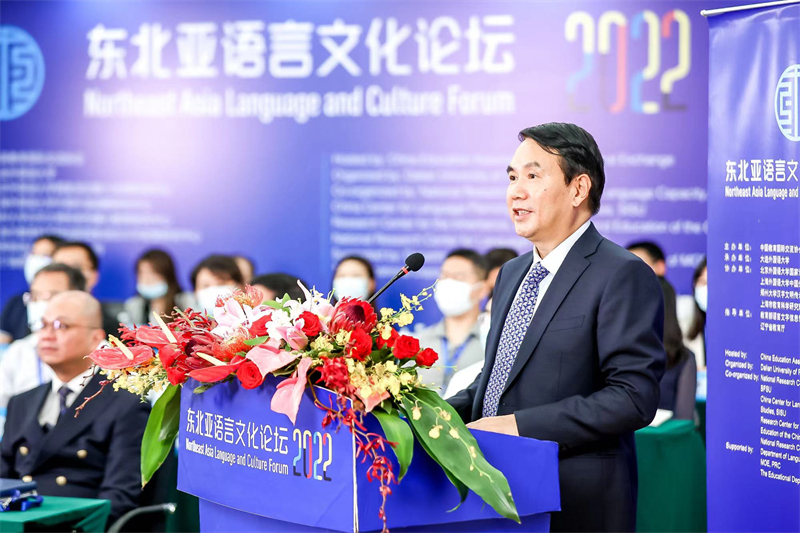
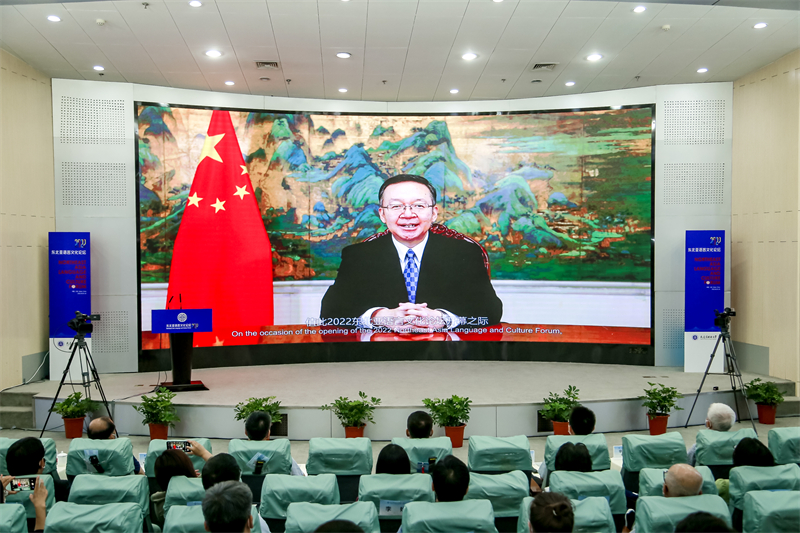




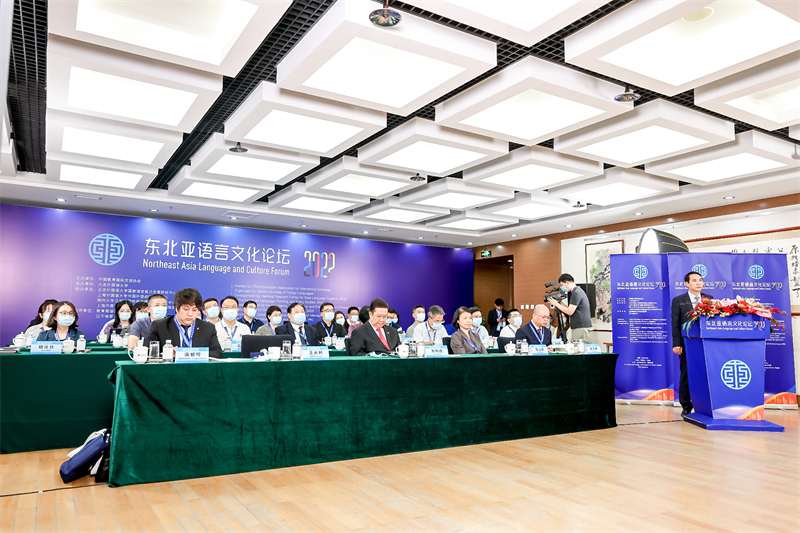

Keynote speech
Wang Yongli, vice president and secretary general of the China Education Association for International Exchange, and Sun Linshu, a Korean teacher at Dalian University of Foreign Languages, respectively presented two keynote speeches.



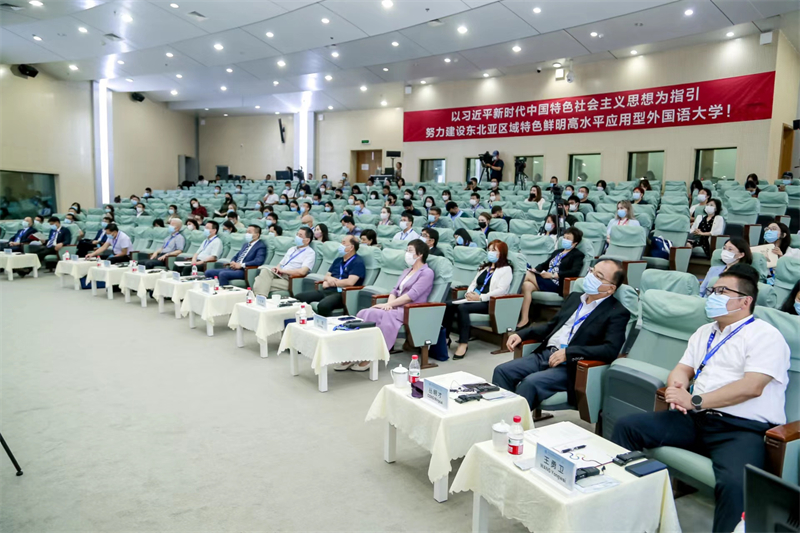
Tian Lixin, director of the Department of Language and Writing Information Management of the Ministry of Education, said that in the future, he is willing to work with Northeast Asian countries to promote cooperation in the field of language and culture and serve the construction of a community with a shared future for mankind. According to the changes in the language environment, Jang Su-won, President of the State Institute of Korean Language, introduced the universality and particularity of the Korean Language policy, and looked forward to the challenges and development direction of the Korean language policy in the future; Vida Yuozovna Mikhaltchenko, academician of the Russian Academy of Natural Sciences, introduced the language policy of the Russian Federation, including five models: monolingual policy, bilingual policy, trilingual policy, multilingual policy and difference.
Professor of the National University of Mongolia and academician of the Mongolian Academy of Sciences Temur Taogao introduced the Mongolian woodblock prints, calligraphy and inscriptions used in the 13th to 16th centuries, and explained in detail the ancient inscriptions in Mongolian that are now known; Professor Li Yuming of Beijing Language and Culture University pointed out that there are many topics that can be cooperated in the field of language and culture in Northeast Asia, and looks forward to establishing relevant academic exchange and cooperation mechanisms to jointly promote language research and language planning research. Professor Lee Gyu-ko of Yonsei University in South Korea elaborated on the historical period of the introduction of Chinese characters into Korea and the current use of Chinese characters in Korea, introduced the changes in Korean chinese character education institutions and Chinese character education policies, and compared the differences in the use of Chinese characters between China and South Korea; Maruo, a professor at Nagoya University in Japan, explained the importance of learning Chinese, etc., and stressed that it is essential to learn the language of other countries in order to truly understand the realities of other countries and respect their cultural practices.
Signature results released
Liu Hong, President of Dalian University of Foreign Languages, presided over the release of the landmark results of the forum. Wang Weichen, Secretary of the Party Committee, Chang Junyue, Vice President , Professor Deng Yaochen of the China Northeast Asian Language Research Center of the State Language Commission, and Inna Tayurskaaya and Sun Linshu, foreign teachers of Dalian University of Foreign Languages, jointly launched the multilingual corpus retrieval and management platform and the northeast Asian language dynamic resource library and context analysis platform successfully developed by the China Northeast Asian Language Research Center of the State Language Commission; Wang Weichen, Secretary of the Party Committee, and Professor Takashi Saikawa of Jilin University unveiled the classic work of Summary of Philology. The release of these two achievements will help further promote the dissemination and development of China's excellent language and culture in Northeast Asia, promote international exchanges and cooperation in language and culture, mutual learning and mutual learning, and enhance mutual understanding among the people of all countries.
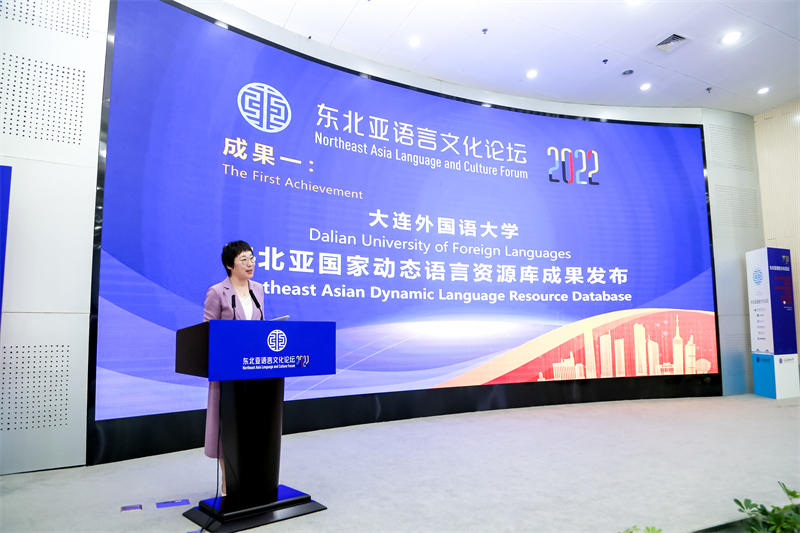

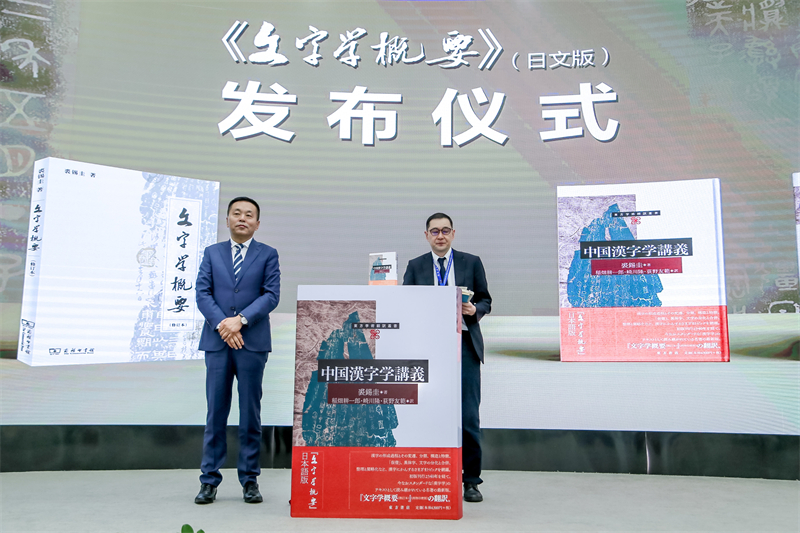
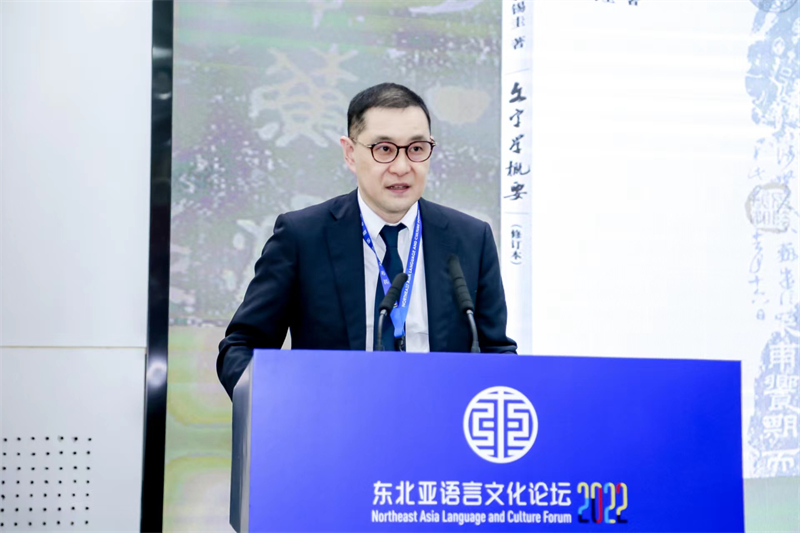
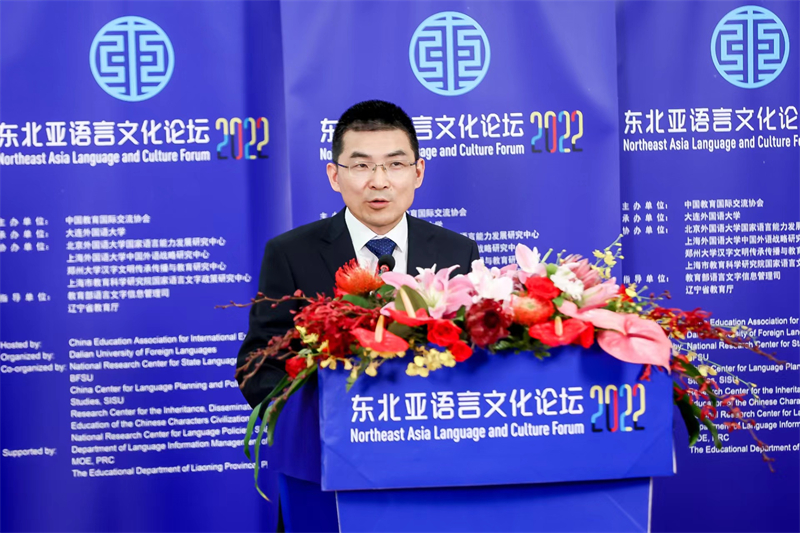

The convening of this forum is a positive action of the State Language Commission to promote language and cultural exchanges and cooperation among Northeast Asian countries, and also an important window to display the development concept, achievements and experience of the development of the Chinese dialect and writing industry, which will play a great role in promoting the international exchange and cooperation of various Chinese cultures in Northeast Asia, disseminating and promoting the excellent Chinese culture, and enhancing the soft power of national culture, and contribute wisdom to the continuous construction of a language and cultural ecosystem and harmonious coexistence in Northeast Asia. It has injected new vitality and new impetus into the exchange and mutual learning of civilizations and people-to-people ties in Northeast Asian countries, and filled the gap of high-level language and cultural exchanges in Northeast Asian countries. (Guo Yining, Lou Yuting)